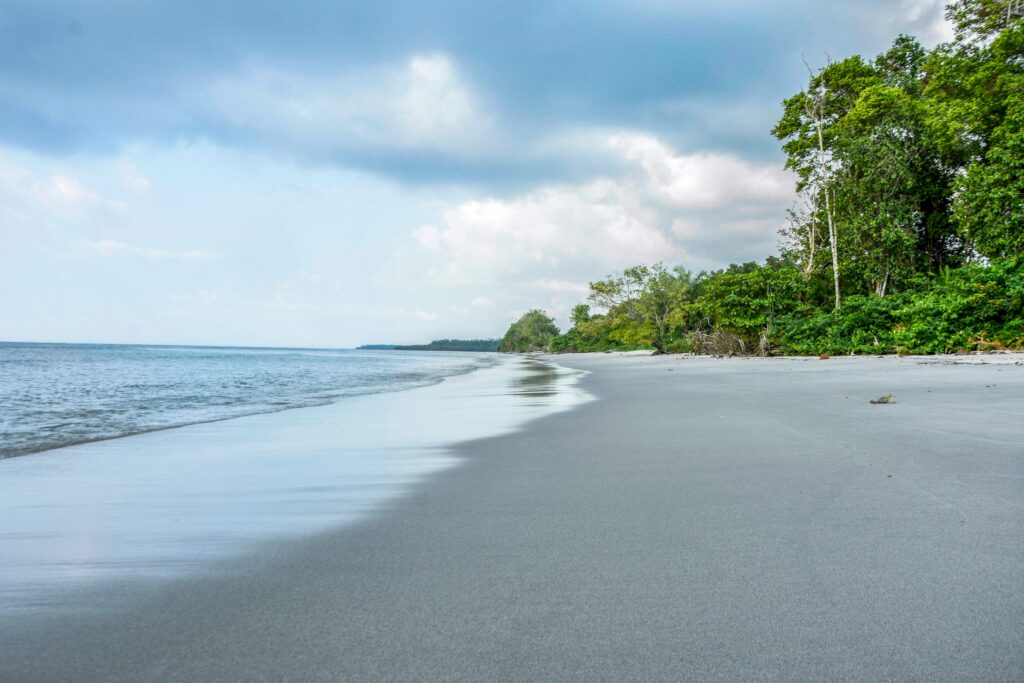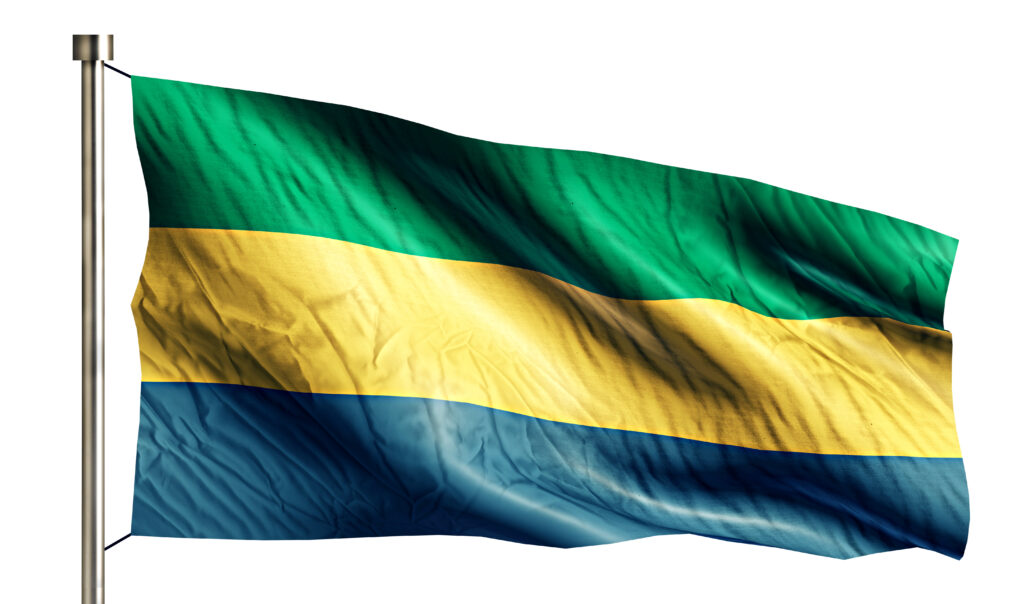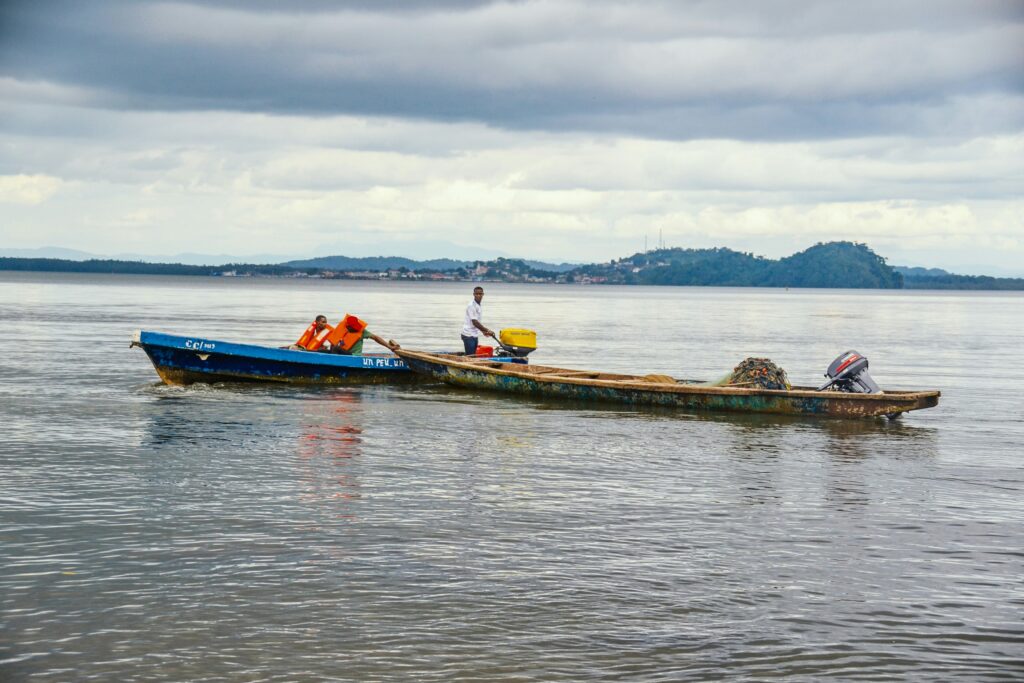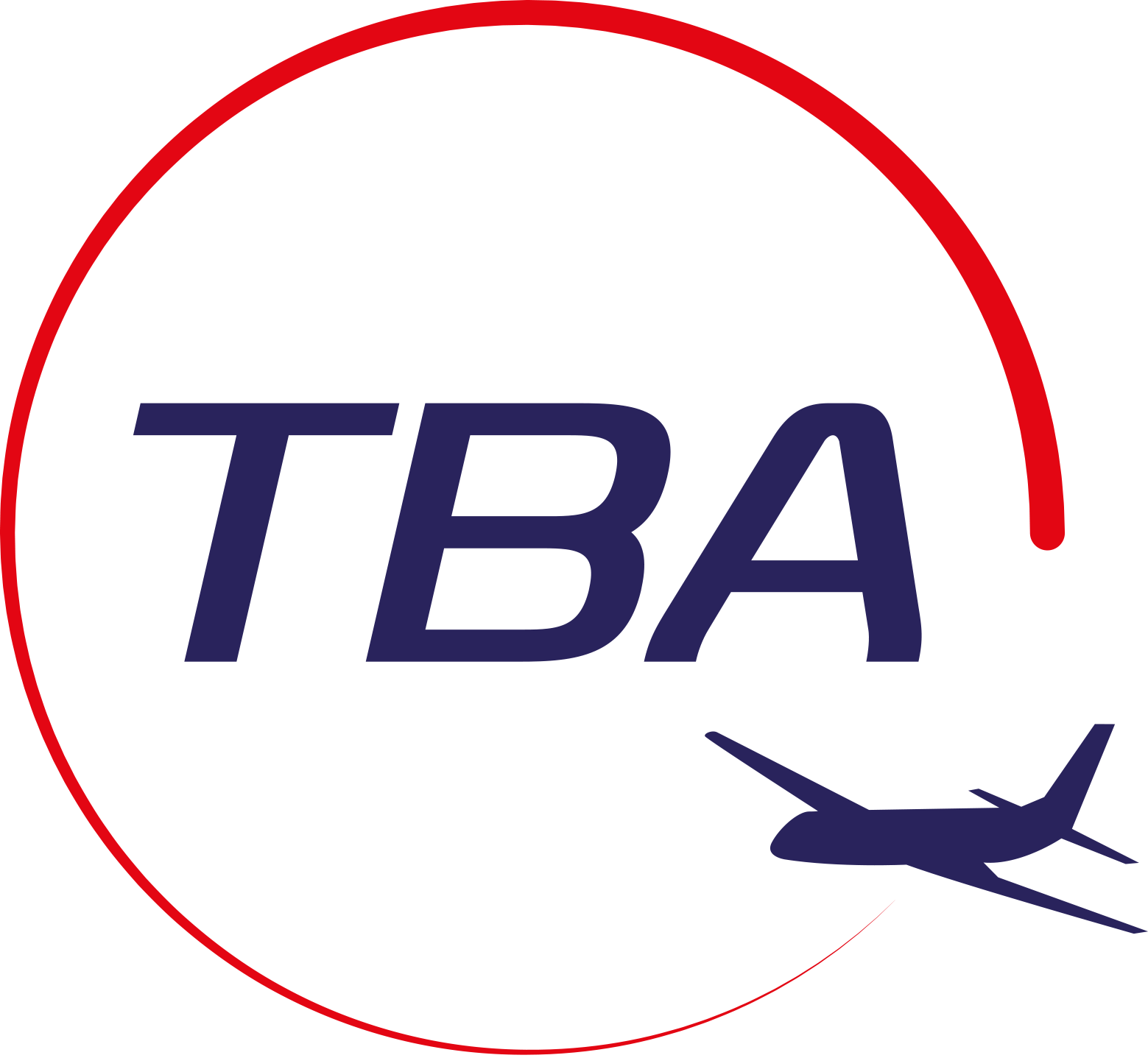
Research and knowledge are the first steps for Gabon Travel Business Assistance. Here is a fact file for Gabon to get you started. Contact us if you are looking to start a business in or expand your market to Gabon. We have consultants ready to help you on the ground in Gabon.
Navigate unfamiliar territories with ease – Schedule your complimentary consultation call with Travel Business Assistance now.
Basic Facts
Origin of the name: This country owes its name to the Portuguese navigators, probably under the direction of Lopo Gonçalves who explored its coasts between 1471 and 1475. It was the estuary of the small Komo River that had their preference, more accessible than the very marshy one of Ogooué. It is said that it is the shape of this estuary, which reminded them of the cabin they wore, which inspired them to name río do Gabão, “the river of the cabin”. Note that the French gaban, the Spanish gaban, and the Portuguese gabão are borrowings from the Arabic qabā “tunic”.
History & Independence: The first traces of human settlements in Gabon date back 400,000 years ago. The first inhabitants of Gabon, the Pygmies then the Bantu peoples, are known only by oral transmission of information. With the arrival of Portuguese sailors in the 15th century, we began to have written testimonies on the coastal populations. For three centuries, the life of the Pongo (a location population) was punctuated by the trade between coastal tribes and European merchants (Portuguese and Dutch, in particular). In the 19th century, France gradually occupied the country, starting from the Komo River estuary and the mouth of the Ogooué River, following the action of explorers. Gabon then became a French colony until its independence in 1960.
Government: The politics of Gabon takes place in a framework of a republic whereby the president of Gabon is head of state and in effect, also the head of government, since he appoints the prime minister and his cabinet. The government is divided into three branches: the executive headed by the prime minister (although previously grabbed by the president), the legislative which is formed by the two chambers of parliament, and the judicial branch. The judicial branch is technically independent and equal to the two other branches, although in practice since its judges are appointed by the president, it is beholden to the same president.
Official Language: French is the official language of the Republic of Gabon.
Notwithstanding the long and exclusive historical relationship between Gabon and France, the enthusiasm for the English language is widespread. Gabonese youth love how British and Anglophone culture is promoted in Gabon and that’s one of the reasons more people are learning the language.
At the Commonwealth Heads of Government Meeting in Kigali, Rwanda, on 25 June 2022, Gabon and Togo became the 55th and 56th members of the Commonwealth. Gabon submitted its application to join the Commonwealth back in 2017.
Indigenous Languages: The indigenous languages are all members of the Bantu family, estimated to have come to Gabon about 2,000 years ago, and differentiated into about 40 languages. The three largest languages are Fang, Mbere, and Sira (Eshira), each with about 25–30% of the speakers. The remainder of the languages (including Teke, Vili, Punu, Myene, and Kota) are single-digit percentages, and some have only a few thousand speakers.
Population: Estimations of the Gabon population are 2,397,368 inhabitants (2023 estimates).
Time Zone: Gabon currently observes West Africa Time (WAT) all year. Daylight Saving Time has never been used here. Clocks do not change in Gabon.
Climate: Gabon has a moist, hot climate of typically tropical regions. Precipitation is abundant and spreads almost annually, typically ranging from 1500 mm to 3500 mm per year. The country has a single wet season between October and May, with a mean monthly rainfall of 200‐250 mm. Temperatures are high and remain relatively constant throughout the year, averaging 25-27°C in coastal lowlands and 22‐25°C inland. January to April is typically the hottest season.
Borders: Gabon’s neighboring countries are Cameroon to the North; the Republic of the Congo to the East and South (The longest land border); and Equatorial Guinea to the North; Gabon also enjoys a Coastline 885 km long with the Atlantic Ocean on its Western side.
Size: The Total Gabon area is about 267,667 sq km of land: which is 257,667 sq km and water: which is 10,000 sq km. Gabon is somewhat larger than the United Kingdom, or slightly smaller than the U.S. state of Colorado.
Religion: The population is Roman Catholic 42.3%, Protestant 12.3%, other Christian 27.4%, Muslim 9.8%, animist 0.6% (2012 estimates)
Currency: CFA Franc (XAF), there is a fixed exchange rate between CFA Franc and Euro (1 Euro = 655 CFA Franc) The exchange rate with other currencies is floating. 1 US Dollar (USD) currently about 601.52 CFA Franc (XAF) (04 July 2023)
https://www.oanda.com/currency-converter/en/?from=XAF&to=USD&amount=601.529

History and Key Events
Precolonial & colonial Era
- 1470 – Portuguese arrive in what is now Gabon.
- 1839 – Local Mpongwe ruler signs away sovereignty to the French.
- 1910 – Gabon becomes part of French Equatorial Africa.
- 1958 – Gabon votes to become an autonomous republic in the French Community.
- 1960 – Gabon becomes independent.
Independence
- 1961 – Leon Mba elected president.
- 1967 – Albert-Bernard Bongo becomes president after Mr Mba dies.
- 1973 – President Bongo converts to Islam and assumes the name Omar.
- 1993 – Omar Bongo narrowly wins the presidential election.
- 2003 July – The Constitution changed to allow President Bongo to run for president as many times as he wished.
- 2009 June – President Omar Bongo dies while undergoing treatment at a clinic in Spain.
- 2009 September – Ali Bongo, son of the late president, named winner of the August election.
- 2016 September – President Ali Bongo is sworn in for a second seven-year term.
- 2018 October – President Ali Bongo reportedly suffers a stroke and leaves the country for treatment.
- 2023 August – After deposing President Ali Bongo in a coup, Gen Brice Oligui Nguema is sworn in as Gabon’s interim president for a transition period.
Gabonese Food
Gabon presents a fantastic cultural and ethnic diversity. From this diversity comes a unique Gabonese cuisine. It’s full of a rich and varied culinary heritage; about 50 ethnic groups make up the country. The base of Gabon’s culinary wealth is partly found in what the land produces, in particular, plantain bananas, cassava, cassava leaves, African eggplant, peppers, and cabbage. Widely consumed, cassava leaves, usually accompanied by smoked fish, are very finely pounded and then boiled. They are used by almost the entire population but not always in the same way; thus, the Fangs add sugar or peanut paste while the Bakotas stew them with soukoutè. With the movement and mixing of ethnic groups, the cuisine has only grown richer, below is a variety of delicacies you could experience when visiting Gabon.
Nkumu Ofula The great secret of this dish is surely the indigenous salt, which gives it a unique salty taste. We also find palm oil and Nkumu leaves, each element playing a role in the harmony of the dish. Nkumu is a vegetable found in forests that is also used as a natural remedy to treat colic in children, constipation, kidney issues, or rheumatism.
Captain’s Broth (Bouillon de Capitaine) Dosed with a good chili; this broth will certainly warm you up. But don’t forget to serve it with lemon, or there will be a little something missing. And the fresher the fish, the better the taste. It is an excellent choice for a family meal on a Sunday afternoon.
Smoked Chicken with Nyembwè (Pulet Fumé au Nwembwè) “Nyembwe” means palm oil in the Myènè Bantu language. Smoked chicken cooked in “seed sauce”, is a well-known dish, testifying to its deliciousness. The seed sauce is made from a variety of seeds like sesame, pumpkin, and peanuts, ground together to form a rich and creamy sauce.
Soukoutè Cassava leaves wrapped in a banana leaf is one of the signature dishes of our Kota brothers. Banana peel juice or cawin (sea salt) are key ingredients, which you can replace with a Kota spice: élodjè. Together with freshwater fish, it is a pure delight.
Okra Sauce (Sauce Gombo) Characterized by its sticky texture, this dish includes Okra, Okra leaves, beef skin, smoked fish, red oil, and dried shrimp. After good cooking, this combination of ingredients is a treat for the stomach.
Salted Fish with Vegetables (Poisson Salé aux Légumes) Salted fish is a delicious and healthy Gabonese family dish made with cod and vegetables. The recipe is very simple, once you have carefully removed the bones from the cod; however, there are many variations, so expect it to taste differently

Things to See and Do in Gabon
Gabon Fishing Excursion will make you discover this fishing sanctuary through its incredible estuaries, rivers, tributaries, and the wealth of its ocean.
The Raponda Walker Arboretum is a classified forest of trees and plants of various species. Raponda Walker was the first Gabonese naturalist. It includes 39 endemic species of trees, epiphytes, and understorey plants.
The Museum of Arts and Traditions of Gabon is a museum of the arts of Gabon: plastic arts, technologies, and music. It houses a collection of around 3,000 traditional Gabonese works and objects of art. It is in this place that the exhibition “Iroungou: From Shadow to Light” was organized.
OGUEMOUÉ Lake is home to a few islands. In a canoe, one will enjoy navigating these large, silent, natural spaces. It is possible to sleep under the stars or in a tent in the heart of the forest, on the site of Tsam Tsam, a desert island. Activities include Hiking, Canoe rides, Bird vision, and Visit to traditional villages.
Discover the Bwiti: It is a secret rite of male initiation that allows people who practice it to access a mystic world. One of the aspects concerns the cult of the ancestors whose skulls and shinbones are preserved.
Iroungou Caves are an archaeological site consisting of burial caves dating from the precolonial period, located near the town of Mouila, in the Ngounié province, Gabon. Several historic artifacts can be observed.
Exhibition “Iroungou: from shadow to Light”: Combining scientific research, multimedia, and technology, this exhibition was the first of its kind in the sub-region, in particular with the presence of virtual reality by the use of 3D headsets.
Masks: From the white Punu masks to the elongated Aduma masks, through the “stylized” Kwélé masks, to the Kota helm masks and the impressive Ngil Fang masks; the diversity of Gabon’s masks is an unavoidable reality where naturalist, geometric, “expressionist” forms are available.
Economy: Gateway to Central Africa
Gabon is an ODI upper middle-income country. The main exports are oil and petroleum products, manganese, processed timber (export of unprocessed timber was banned in 2010), and agricultural products (mainly rubber and palm oil). The country is covered by tropical rain forests with the remaining land covered by savanna grasslands, swamps, marshes, and mangroves, as well as agriculture. Gabon is a member of the Extractive Industries Transparency Initiative (EITI) and is committed to promoting transparency and eliminating corruption in extractive industries. It also provides access to the region. The sub-regional market represents 250 million potential consumers that can be accessed from Gabon thanks to customs and economic cooperation agreements with other Central African countries such as CEMAC and ECCAS.
Doing Business in Gabon
Ease of Doing Business Index Scores
Overall score: 45.0 (2020)
Starting a business score: 87.0 (2020)
Trading across Borders score: 43.9 (2020)
Enforcing Contracts score: 32.8 (2020)
Legal System: Gabon’s legal system is based on a mix of French civil law and customary law. Regular courts handle commercial disputes in compliance with OHADA’s standards. Gabon’s 1998 investment code, which gives foreign companies operating in Gabon the same rights as domestic firms, allows foreign investors to choose freely from a wide selection of legal business structures, such as a private limited liability company or a public limited liability company.
Company creation procedures:
- Deposit the legally required capital in a bank and obtain the deposit evidence
- Verify and reserve the company name at the Industrial Property Center (Centre de la propriété industrielle du Gabon – CEPIG)
- Register the company and request the publication of a notice of incorporation at the National Investment Promotion Agency (ANPI-Gabon)
- Pay the company registration fees and obtain a receipt from the cashier at the National Investment Promotion Agency (ANPI-Gabon)
- Obtain a Tax ID (NIF) from the Tax Authorities (Direction Générale des Impôts)
- Register the employees with the Social Security Authorities (Caisse Nationale de Sécurité Sociale – CNSS and Caisse nationale d’assurance maladie et de garantie sociale -CNAMGS)
- Submit an employment declaration to the Labor Inspectorate
National Investment Promotion Agency (ANPI-Gabon)
Created by decree №311/MPIIHAT of September 25, 2014, ANPI-GABON assists economic operators throughout the process of formalizing their businesses and promotes investment at the national and international levels. In 2019, ANPI-Gabon launched the INVEST IN GABON label. This is to develop the country’s image and highlight international business opportunities. Through this label, ANPI-GABON speaks “Business” in all languages.
The challenge is to make Gabon a destination of choice for investors by positioning the ANPI as the guarantor of the implementation of the investment policy in Gabon.
Why invest in Gabon?
- Growing and Diversifying Economy: Gabon is an upper-middle-income country. The seventh largest oil producer in Africa, Gabon has long relied on oil and manganese to fuel its economic growth. In recent years, Gabon has sought to diversify its economy through the development of the tourism, agricultural, energy, and pharmaceutical sectors, among others. Aware of the socio-economic benefits offered by information and communication technologies, Gabon has invested heavily since 2012 in the construction of a high-speed fiber optic network. The cost of internet access has fallen 10x since 2010, and the number of subscribers has increased by 7x over the same period.
- Eco-friendly and Sustainable: Gabon is transitioning to become an economy founded on the principles of sustainable development, transforming more and more natural resources into value-added finished and semi-finished products and promoting a circular economy. The newly developed timber processing industry, for example, is allowing Gabon to generate more jobs and resources for the economy from less wood, guaranteeing sustainability and even raising carbon stocks in selectively harvested forest concessions. The country has been awarded several times by the international community for its role in preserving ecosystems and biodiversity and Gabon bases its economic development on green growth in full compliance with the Paris Agreements and the SDGs. Investing in Gabon means developing an environmentally and socially responsible investment and participating in the fight against global warming in a sustainable manner.
- Investor Friendly: Gabon maintains a favorable legal and tax framework for foreign investments and is working to further promote investments by continuing to ease administrative procedures. The country recently established a new public-private partnership framework. The country has also created several economic and special economic zones to promote new growth hubs across the country and to provide further incentives and benefits to attract investors. These include the Special Economic Zone of Nkok, with 1,100 hectares mostly dedicated to the timber industry close to the capital Libreville, and the special tax concession zone of the island of Mandji beside Gabon’s economic capital, Port-Gentil, which covers 1,500 hectares. These zones provide additional tax benefits and investment incentives to foreign investors.
Gabon Mineral Potential
Manganese
- 250 million tonnes (6th world reserve)
- 2016: 20% of minerals processed
- Target 2025: 35% transformation rate
- Project for the creation of the Moanda Special Economic Zone
Iron Ore
- 1 billion tonnes (untapped Belinga deposit)
- Target 2025: 35% converted to pellets
- Steel production
Gold
- Target 2025: production of 50 tonnes
- Accumulation of assets as a reserve for the future
- Protection against inflation and exchange rate fluctuations
Building Materials
- Competitiveness of the local construction industry
- To become the leader in processed woods by 2025
Rare Metals
- Rare earths, Niobium, Tantalum, uranium
- Becoming one of the world’s leading producers
Industry
- Petrochemicals, fertilisers, hydrocarbons
- Phosphate, sulphide, potassium, limestone
Invest in Gabon Initiatives
GSEZ Nkok: Launched in 2010, the Nkok Special Economic Zone (SEZ) is a multi-sectoral industrial park located 27 km from Libreville. On 1126 ha, it includes an industrial zone, a commercial zone and a residential zone. The SEZ brings together 144 companies from 16 countries operating in 22 industrial sectors, including a cluster dedicated to wood processing which brings together 84 companies.
Biodiesel/Biogas: Olam Palm Gabon will benefit from a loan of 90 billion francs ($150 million) from the International Finance Corporation (IFC). This loan will allow Olam Palm Gabon to maintain existing palm oil production facilities. But also, to build a biodiesel plant and a refinery at the port of Owendo near the capital Libreville, a new palm oil mill with an almond crushing plant and biogas cogeneration plants at the new mill and three existing mills.
Health
A passport with more than six months of validity remaining, a visa, and proof of vaccination against yellow fever are required for entry into Gabon.
It is strongly recommended that you visit a travel vaccination clinic and get other vaccinations and prophylaxis for malaria.
COVID-19
International travel to Gabon is permitted. There are currently no quarantine or health testing requirements.
Immigration
Visit the Embassy of Gabon website and or the nearest Gabon embassy or consulate for tourist visa information and document requirements for work visas.
Gabon has established an electronic visa, also called an e-visa to facilitate entry into its territory. Those wishing to settle in Gabon are requested to consult the www.dgdi.ga website for terms and conditions. Currently, e-Visas are valid only for those wanting to visit Gabon by air via Leon Mba International Airport in Libreville.
Unique Facts About Gabon
Leatherback Sea Turtle: Gabon is home to the world’s largest species of sea turtle, the leatherback. Leatherbacks can grow up to 7ft (2.1m) in length and weigh as much as 2,000lbs (900kg). Gabon’s Mayumba National Park is a marine park that sees 550 leatherback turtles – 30% of the world’s total population – lay their eggs there between November and April. The park is also a mating ground for humpback whales and large groups of dolphins, including the rare humpback dolphin.
Natural Nuclear Reactor: Among the multiple surprising facts about Gabon, this one stands out. The African country was home to the world’s only natural nuclear fission reactor. The Oklo nuclear reactor, which is located in the Oklo mines west of Gabon, was discovered in 1972. The mines have 16 sites; it was reported that these sites hosted self-sustaining nuclear fission reactions over 1.8 billion years ago. These reactions ran for thousands of years. It was estimated to have averaged around 100KW of thermal power during the process.
Gabon Travel Business Assistance
Are you planning to move your business to Gabon or open up Gabon as a new market? Perhaps there is a conference in Gabon you need to attend and you need some help. We are here for your Gabon Travel Business Assistance.
